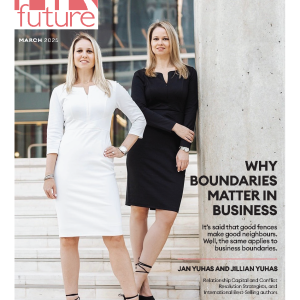During South Africa’s highly stressful and prolonged national lockdown, many business leaders have radically adjusted their leadership and/or management styles as a response to the shift to remote working. In many instances, for example, leaders and managers have attempted to maintain strong connections and company culture by scheduling multiple ‘check ins’ with their teams – often leading to fatigue and a resentment around too many meetings.
Indeed, by potentially confusing authentic engagement and connection with what amounts to micromanagement, leaders and managers are in danger of creating the perception that team members and employees are not to be trusted (and need to be checked up on at regular intervals). On the flip side, some managers might be overly sensitive to their staff and the perception of micromanagement – leading them to be particularly lenient towards employees who seem to offer up numerous reasons why key deliverables haven’t been achieved.
As with many leadership and team dynamics in the ‘new normal’, this is a challenge that requires a proactive strategy and tangible action steps. By simply letting negative perceptions flourish, business leaders risk a quick drop off in both employee engagement and productivity.
Here are 3 strategies that forward-thinking managers and leaders can employ right away:
Embrace ‘essentialism’ and shorter term thinking. To build one’s courage and connection levels as a leader, you’re encouraged to discern what is truly required in terms of team member contact and visibility of tasks and actions. Here, the most efficient way is not to guess or assume but to be direct and ask the team what is working well, and what needs adjusting after working remotely for the past few months.
For example, what is absolutely necessary for us to be focusing time, energy and resources on right now? While it seems anti-strategic and counter intuitive in business to take a shorter term view, many are unable to confidently predict what will happen beyond three months’ time – so shorter term chunking up of priorities could reduce your team members’ feelings of resignation. As with Agile processing and project planning, identifying the narrow parameters in which you are working (for a set period of time) can sharpen focus and boost motivation.
Gain insight into personality styles and motivations. Importantly, managers are also encouraged to be curious about the style and motivations of each of their team members. This might require following a more informal and engaging approach of having one-on-ones, asking questions of each person, observing where they have increased or decreased energy levels, and giving them feedback around what you’re noticing.
In other instances, a more formal approach is needed – such as using a personality assessment tool or a facilitated dialogue session so the team members can get to know each other better and create a space, away from day to day tasks, to have meaningful conversations about what makes them tick. When intentions and guidelines are made clear upfront, these engagements have the potential to raise courage levels because team members feel it’s safe to speak up and be themselves.
Establish boundaries, not barriers. Within a business, being clear about requests you’re making, receiving and responding to is vital. In addition, it’s equally important to know when to hold a line and take a stand. Put simply, boundaries outline what is ok and not ok in any team, project or relationship. Most importantly, they need to be articulated, understood and agreed upon – if people don’t know there is a boundary line in place, they are likely to step/trip over it. If a boundary is set up which prevents any form of discussion or engagement, then a barrier, like a stone wall, has been set up and needs to be understood and dismantled (one brick at a time), to understand why the employee feels the need to hide/self-protect in this way.
A good example of necessary boundaries is a company’s set of values, which, if well-constructed, define the meaning of the shared value and operationalise the value into measurable and observable behaviours for people to adhere to. Should you feel people aren’t demonstrating these expected behaviours or are throwing up excuses which, while valid, are leading to commitments not being met, a feedback and feedforward conversation is required.
By leading with both awareness and empathy, leaders and managers can learn to identify when they are micro-managing instead of connecting, and standing back instead of ‘leaning in’ to important conversations.
Ultimately, these differences can shape the future trajectory and sustainability of the business itself.
Julia Kerr-Henkel is the Founder of Lumminos.

























